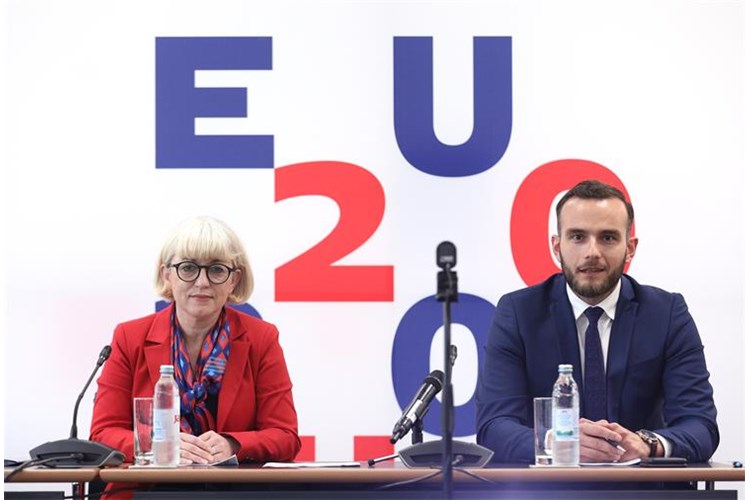EU ministers for employment and social affairs have held their third meeting during the COVID-19 pandemic. For the first time, the focus of the discussion was on
recovery. In particular, ministers exchanged views on
how to make national employment and social policies more robust and labour markets more resilientin order to overcome the consequences of the COVID-19 pandemic.
“The current crisis has had a huge impact on our working habits - remote working and flexible working hours have become the norm and the use of digital technologies is on the rise. In this context, it is crucial to get our policies right. A more resilient EU economy requires a better skilled workforce. Therefore, we need to invest broadly in education and training, in particular in the upskilling and reskilling of workers and employees across our Union.”
Josip Aladrović, minister for Labour and Pension System of Croatia
The discussion was structured around the following questions prepared by the presidency:
- Various flexible working arrangements, such as remote work, flexible working hours, and innovative ICT technologies have been widely used during the COVID-19 crisis. Do you consider that continuing to use them in the future would be economically and socially beneficial in the long run?
- What are your plans regarding upskilling/reskilling, given the shifts in the world of work caused by COVID-19, and also in the light of the ongoing digital and green transitions?
- In the context of the COVID -19 pandemic, how are you addressing the protection and promotion of gender equality, especially in relation to vulnerable groups?
Ministers welcomed the adoption of the Recovery package, but stressed that the COVID-19 crisis has given rise to serious challenges in the employment and social policy area, in particular as a result of the widespread use of IT tools, teleworking and videoconferencing.
Ministers identified social isolation, data protection, workers' health and the protection of employees and workers' rights among the most challenging issues. In relation to the radical transformation of working patterns, many delegations highlighted the need to continue the social dialogue and the important role that the social partners should play in this transition.
Ministers also stressed that the current crisis had only accentuated the need for upskilling and reskilling as ways to support economic recovery and social cohesion and to build an economy and societies which would be more resilient in view of future challenges.
In relation to gender equality, many ministers identified domestic violence as a serious issue during the COVID-19 lockdown. They shared experiences in relation to combatting domestic violence and providing assistance to victims.
Ministers broadly agreed that recovery policies should be designed with gender equality in mind, in particular given the fact that key duties during the current health crisis had been performed by women.
“In these challenging times, nurses, healthcare and social workers, and informal care workers, most of whom are women, have been on the frontline. In this situation, the issue of gender equality becomes even more challenging. Our discussion today showed that, in order to recover from the crisis, we need adequate policies to tackle long-term problems, such as unequal distribution of care responsibilities and the gender pay gap.”
Vesna Bedeković, minister for Demography, Family, Youth and Social Policy of Croatia
Under any other business, the presidency informed ministers about the ongoing
Semester process and the
2020 country-specific recommendations (CSRs).
News


